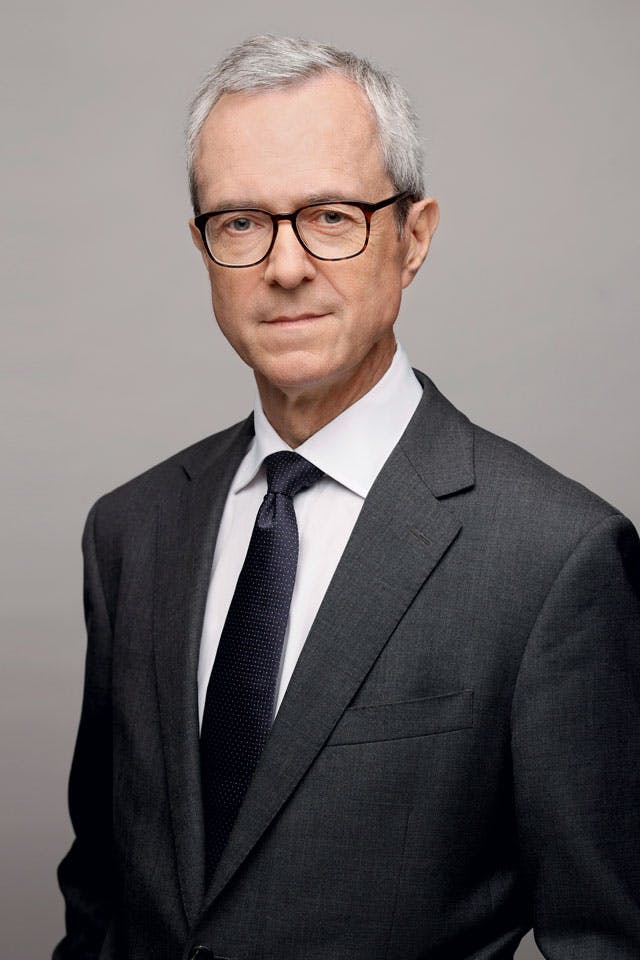Rethinking our industry at scale with profound changes
A look at macroeconomic balancesA look at macroeconomic balances
After 2022, which was marked by a sharp return of inflation and a complete reversal of the monetary policy of central banks, 2023 will be a transitional year with an expected return to normal in 2024. Review and outlook by William De Vijlder, Group Chief Economist of BNP Paribas.


“In 2023, the locomotive of the rebound in activity is the ecological transition.”
When barely emerging from the perils of a health crisis, Europe was faced with the war in Ukraine, a geopolitical crisis with serious economic consequences. What do you retain from the past year?
William De Vijlder → Even if, since 2020, unprecedented years have a nasty habit of following on from each other, 2022 remains a year of major shocks, with the return of inflation and monetary tightening. The inflationary surge, amplified by the conflict in Ukraine, has taken hold over time and the exponential increase in energy and food costs weighs heavily on businesses and households. Following the rate hikes decided by central banks, inflation was accompanied by monetary tightening. I have learned two lessons from this unprecedented chapter: our world has become considerably more complex and micro-economics has taken over from macroeconomics. Companies and households adapt in real time to price increases, the former by reducing their margins and/or increasing their prices; the latter by adapting their consumption, by consuming differently. These important granular elements must now be taken into account. And the fact that we have less readily available micro data than macro data complicates the overall analysis.
Can we expect a return to normal by the end of 2023?
W. De V. → The intensity of the two shocks — inflationary and monetary — is gradually easing but the return to normal will not be before 2024. 2023 is a year of transition. The first half of the year was marked by the start of disinflation, the pace of which determined that of the recovery in demand through household purchasing power. Regarding monetary policy, we will probably reach the peak of official rates around the summer months, yet a cut is only expected in 2024. However, growth in western economies, and therefore also in the eurozone, will remain subdued throughout the year.
Can we still be confident about the future?
W. De V. → We should already see a gradual return to normal in the second half of 2023 with inflation increasingly declining which should allow monetary easing and a return to growth in 2024. It should also be stressed that, in the face of the shocks that have followed one another since 2020, our economies have proven to be resilient. In addition, we have some encouraging indicators in Asia, the United States and Europe. The Chinese authorities’ new approach to managing the Covid-19 crisis improves the country’s economic outlook for 2023. The confidence of companies that export to this country will also benefit from this. In the United States and Europe, the household savings accumulated during the pandemic, the quality of the balance sheets of private companies, the support of governments and labour retention measures protect us from the return of a high level of unemployment.
Does the acceleration of the ecological transition have a positive impact on the recovery?
W. De V. → Absolutely. In previous crises, as economists, we always wondered which sector would be the driver of the rebound in activity. In 2023, we already know the answer: the locomotive is the ecological transition! Europe, which has become fully aware, with the war, of the urgency of freeing itself from its dependence on fossil fuels, is multiplying concrete advances, especially with the carbon adjustment mechanism at borders. Companies, and to a lesser extent households, are investing with the support of public authorities: a fruitful trend for economic players and financial markets.
Interview conducted on 17 March 2023.
